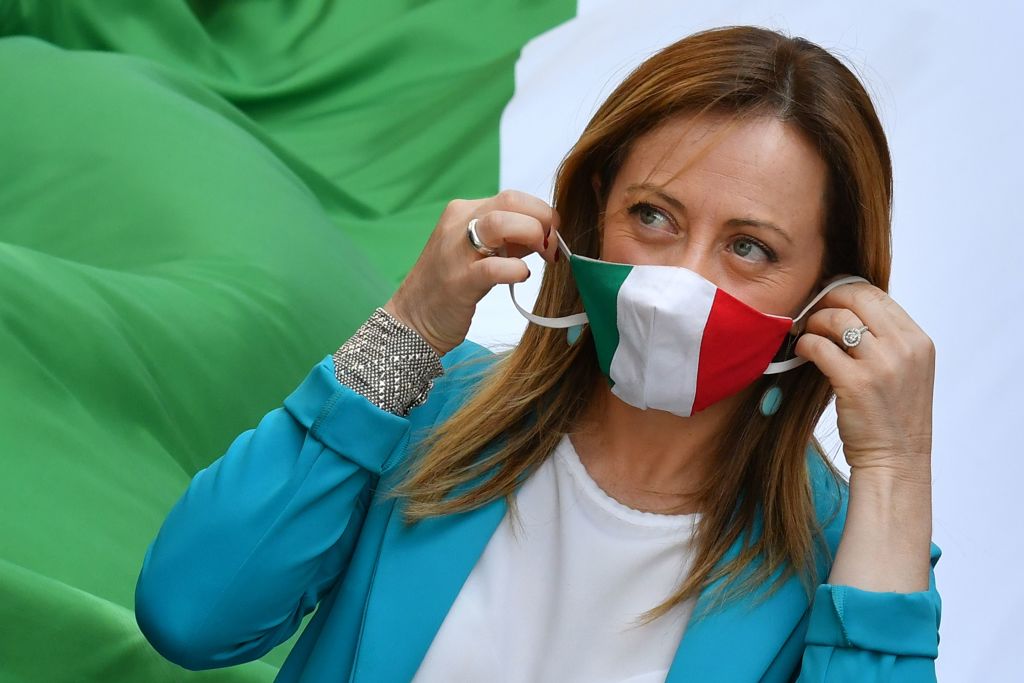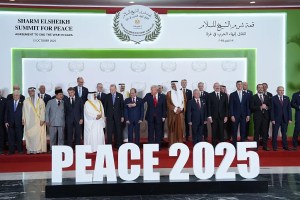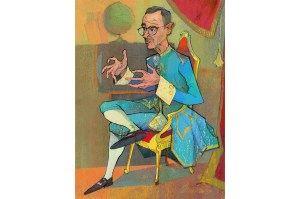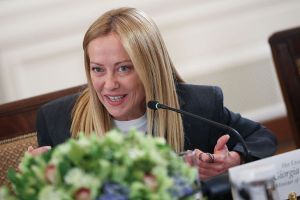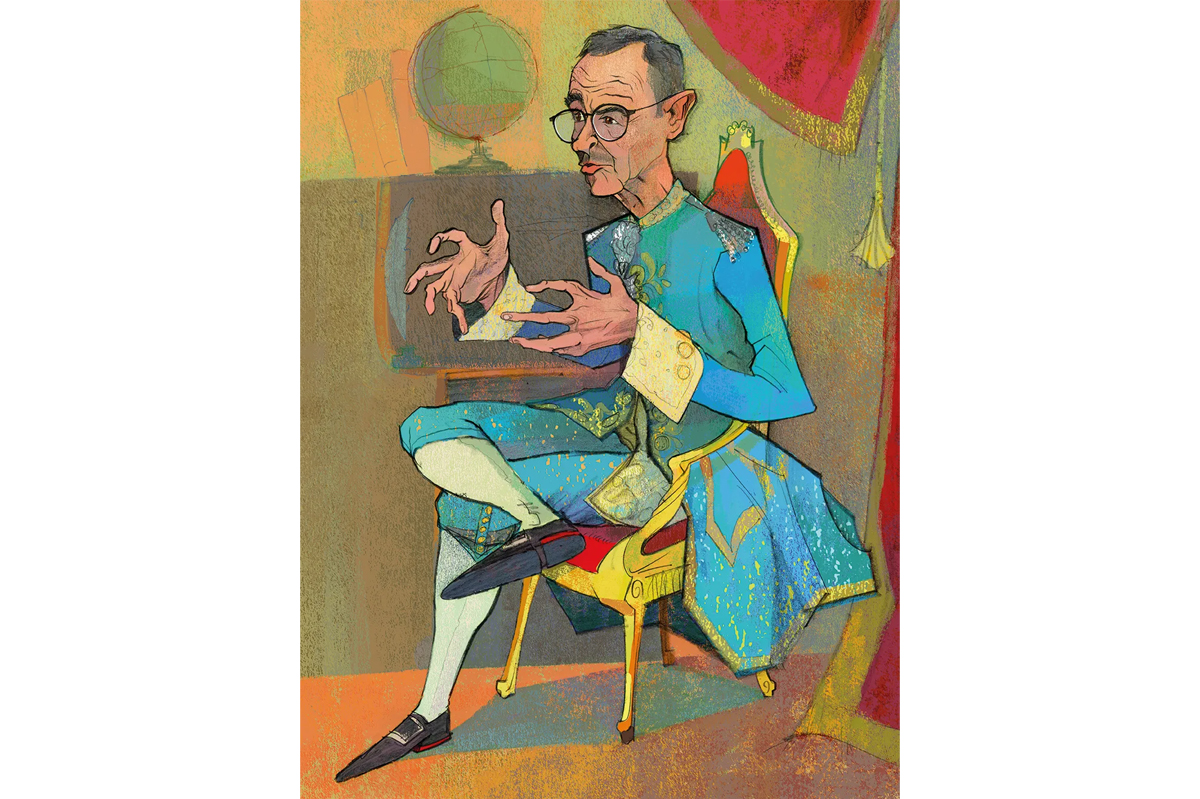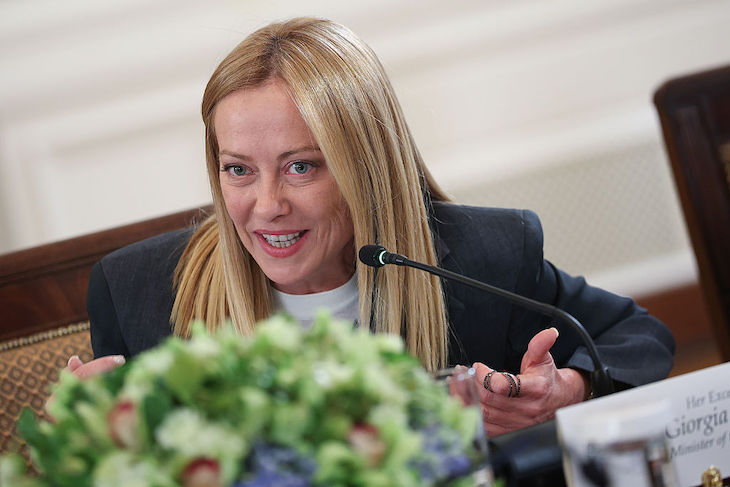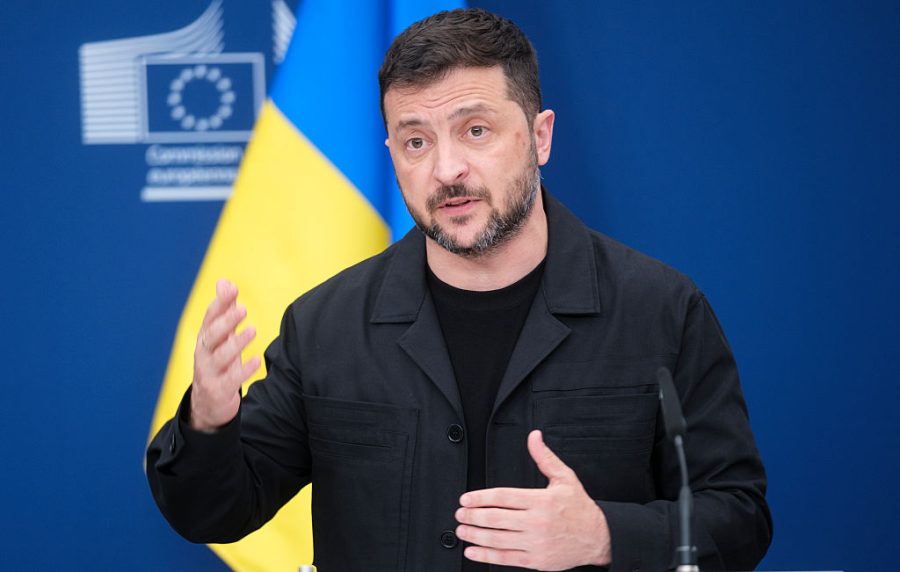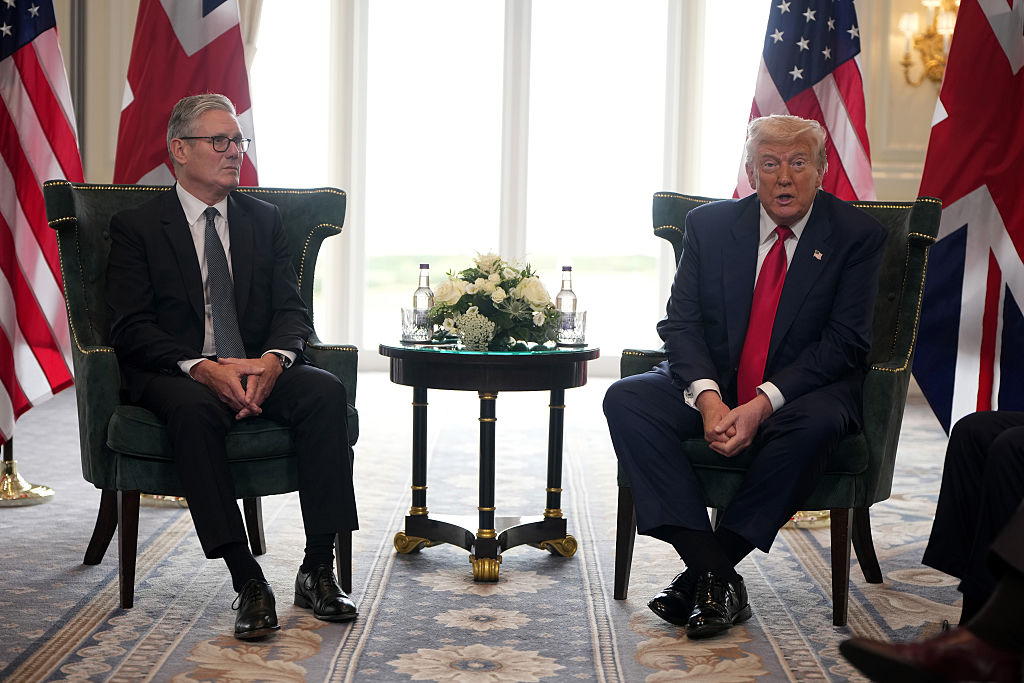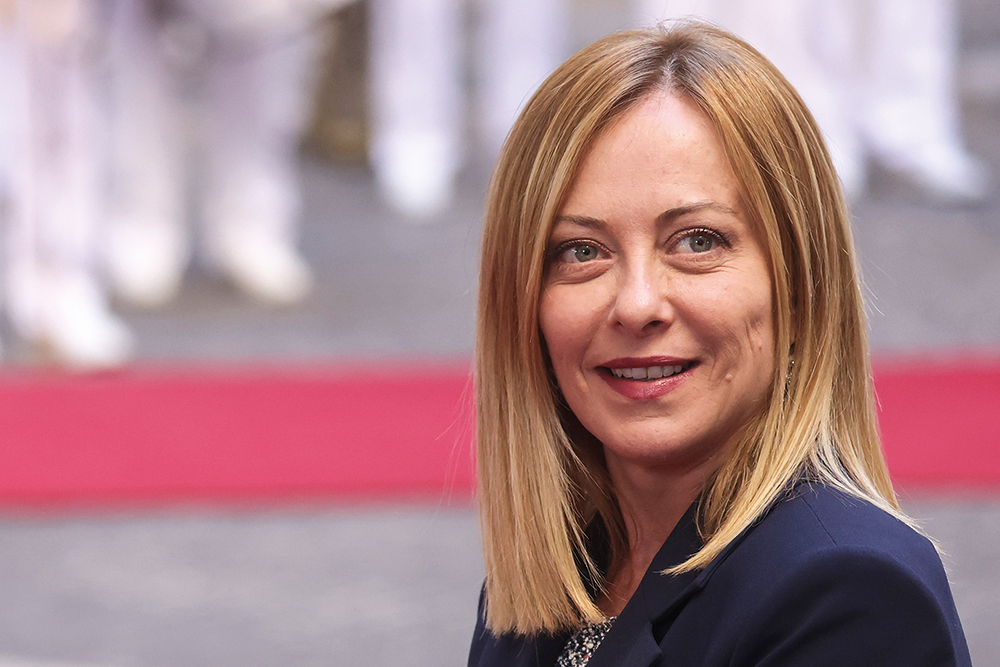Last summer, a bare-chested Matteo Salvini, leader of the right-wing Lega Nord and interior minister at the time, roamed the trendiest beaches on the Adriatic coast drinking mojitos and dancing to DJ sets. But 12 months on, the partying has stopped and Salvini has lost his magic touch: Lega has been ousted from the government and support is draining away by the day. ‘Papeete Syndrome’ — named after the tawdry beach club which became Lega’s unofficial headquarters last August — is now a synonym of self-defeating hubris in Italy’s political lexicon. And today Italian conservatives worship a new idol: Giorgia Meloni.
Salvini’s decline in the polls has largely coincided with Meloni’s meteoric rise. Her Fratelli d’Italia (Brothers of Italy) party has surged from five to 15 percent over the past year, while the League has tumbled from over 35 to around 23 percent. How was this possible? Part of the reason is that Salvini’s firebrand rhetoric against migrants and the European Union has lost much of its appeal. Migrant crossings from Northern Africa have dwindled over the past year, and are no longer of much interest to ordinary voters. In the meantime, the EU massively gained in popularity after agreeing to provide Italy with a €209 billion ($246 billion) fund to rescue its struggling economy in the wake of the pandemic. ‘Salvini is seen as a loser, and Meloni as a winner. It’s as simple as that’, says Lorenzo Pregliasco, a pollster, who points out that the leader of Lega has misread every single political move over the past 12 months.
Italian politics is an ephemeral business. After a brief infatuation, Italy’s voters grew weary and wary of Salvini’s macho brand of populism and bought into Meloni’s humble leadership style. She is a self-made woman — and Italy’s only female political leader — who never hides her origins in the lowly and left-wing suburb of Garbatella in Rome. As a student she went canvassing during the day and worked as a babysitter, waitress and bartender (she even prides herself on having invented a cocktail) at night. As with many right-wing leaders around the world, Meloni casts herself as an outsider to Italy’s liberal establishment and frequently rallies against the left’s supposed elitism. ‘What bothers me the most is that the left does not recognize me as an equal’, she said in an interview with Libero, adding: ‘They always label me as a commoner, an incompetent, someone who doesn’t know what she’s talking about. Instead over the years I have shown myself to be more competent than many government figures.’
Meloni cut her teeth in the Movimento Sociale Italiano (MSI), becoming leader of the youth wing at 19 and deputy president of Italy’s Chamber of Deputies at 29. Her success was always on the cards. But despite these early achievements, she looked to the bigger picture, biding her time and playing the long game. She is patient and serious minded in the pursuit of power.
A long-standing acquaintance of Meloni puts it rather starkly: ‘Renzi and Salvini’s first public appearances were on a popular television game show when they were teens. This is not a coincidence: they are naturally inclined towards showbiz, not politics. At the same age, Meloni handed out leaflets in the Roman borough of Colle Oppio. She is a more serious and astute version of Salvini and resents the fusion between politics and entertainment.’
[special_offer]
In terms of ideology, the biggest difference between Meloni and Salvini is their international outlook. The former is a staunch pro-American who identifies with the values of the Republican party, while the latter is a self-styled Russophile who admittedly ‘feels more at home in Moscow than in Brussels’. Meloni was the only Italian to be invited to the Conservative Political Action Conference (CPAC) in Washington in March 2019 and was labeled as the ‘rational face of Italian populism’ by the alt-right ideologue and former Trump staffer Steve Bannon. ‘If Meloni were American she would belong to the Republican right, something along the lines of Sarah Palin’, says a party insider, adding: ‘In Britain she would likely be a Tory Euroskeptic but not a Brexiteer’.
In stark contrast to Salvini, Meloni is no friend of Vladimir Putin and keeps his European cheerleaders at arm’s length. In Brussels, Fratelli d’Italia belongs to the European Conservatives and Reformists (ECR), the former group of the Tories, which is much less hostile to the EU than the right-wing ‘Identity and Democracy’.
Over the coming months, Meloni will continue her political balancing act: she needs to differentiate herself from Salvini-style populism without looking like a centrist. ‘Salvini and Meloni are competing for the same set of frustrated and disillusioned voters. Behaving like moderates is not a winning formula for either of them’, says Salvatore Merlo, deputy editor of Il Foglio. Many Italians are closely eyeing the changing balance of power within the conservative camp and there is widespread agreement that Meloni — not Salvini — is the one to watch. But we will have to wait until the next general election to understand if she is set to be Salvini’s junior coalition partner or Italy’s first female prime minister.



